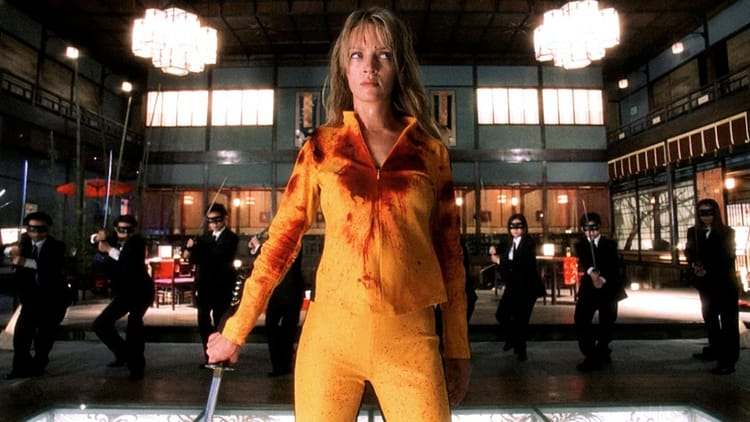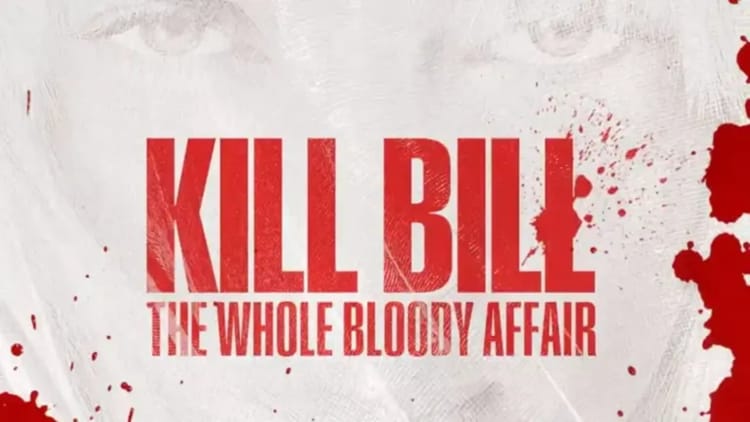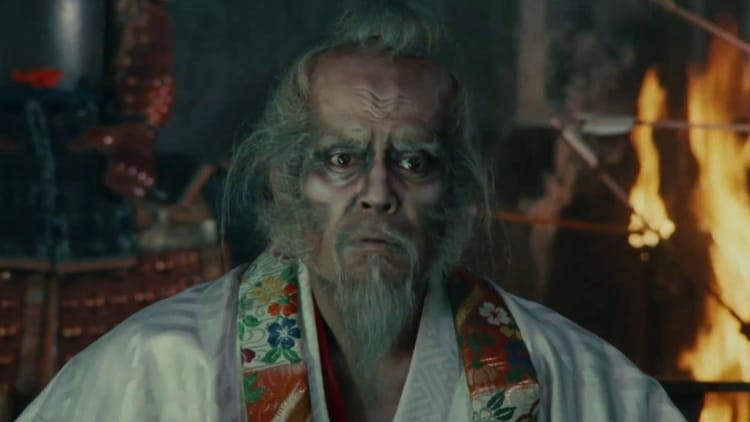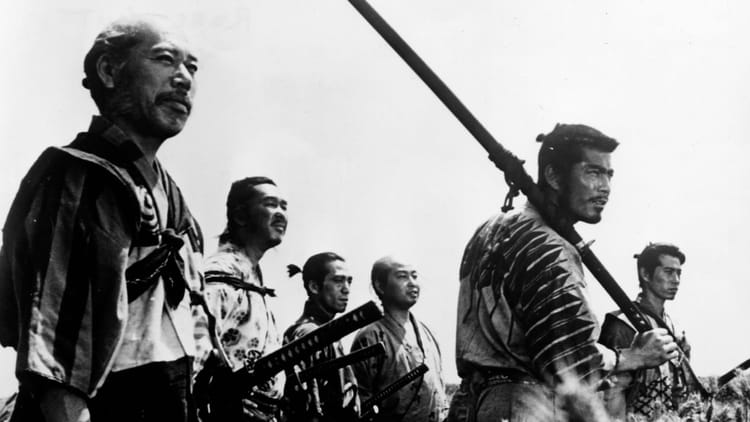Samurai III: Duel at Ganryu Island
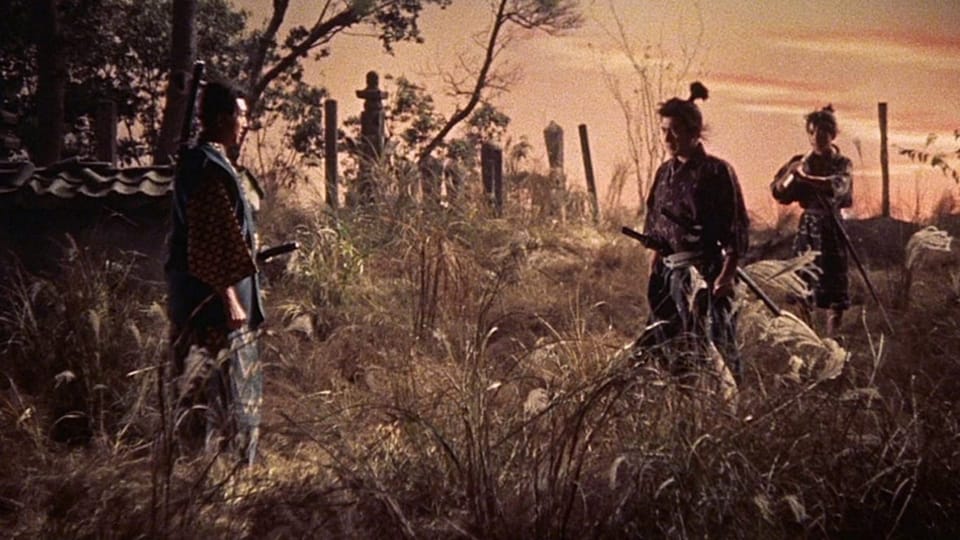
Duel at Ganryu Island isn’t your run-of-the-mill trilogy capper, it’s a goddamn lesson in how to stick the landing. You know how third movies usually go: cheap nostalgia bait, recycled story beats, and way too much self-indulgent backstory? Yeah, none of that here. Director Hiroshi Inagaki pulls off the near-impossible: a third act that doesn’t just wrap things up but elevates the whole damn trilogy. Instead of circling back to Musashi’s old stomping grounds, we get new terrain: Edo’s buzzing streets, the vast emptiness of the Kanto plain, and, of course, Ganryu Island, where history’s about to be made. The film expands, not contracts.
It also knows when to cut the dead weight. Forget dragging along every side character from the past two films, if they had their moment, they’re gone. No Takuan, no Matahachi, and outside of Toji Gion, no remnants of the Yoshioka school. It’s clean, it’s sharp, it’s a film—not a serialized novel bogged down with excess.
This whole trilogy has been teasing one thing: the inevitable clash between Musashi Miyamoto (Toshirō Mifune) and Kojirō Sasaki (Kōji Tsuruta). These guys are two sides of the same blood-stained coin, but where Musashi has been sculpting himself into something greater, Kojiro is all ego, all precision, all obsession. His entrance is one for the books, standing at Shiraito Falls, a rainbow behind him, cutting a goddamn swallow in half mid-flight just to prove he can.
Kojiro doesn’t just want to fight Musashi, he needs to. Everyone wants a showdown with the quickest gunslinger in the West, so to speak. It’s not just about skill; it’s about legacy, about proving he’s the best. He’s smooth, polished, arrogant, and vicious. If Musashi is the rogue outlaw who forged his own path, Kojiro is the cold-blooded aristocrat, playing the system but never truly belonging to it.
And Musashi? The dude’s grown. First movie, he’s all reckless fire. Second movie, he’s refining his craft but still haunted by the fight. Now? Now he’s above it. He doesn’t need to prove himself anymore. He watches a match in Nara and doesn’t feel the urge to jump in. When Jotaro, his scrappy little apprentice, starts mouthing off, Musashi doesn’t escalate, he apologizes. He’s reached that point where real strength isn’t about flexing, it’s about knowing when not to strike.
He’s good. He is my only match in this country today. My dream is to fight him. He must dream of it, too.”
And yet, the fight is coming. He knows it. But when Kojiro challenges him, Musashi does something wild, he delays it for a year. Not out of fear but because he knows he’s not ready. He’s not looking to just win, he’s looking to be worthy of the moment.
The fight itself? Jesus. If there’s a more perfectly staged duel in samurai cinema, I haven’t seen it. No big speeches, no long-winded buildup. Just two men on a beach at sunrise, standing in the surf, letting the weight of history press down on them.
Musashi arrives with a carved wooden oar, his own weapon, reflecting his unorthodox journey. Kojiro stands waiting, his blade gleaming. The waves crash, the wind howls, and for a moment, there’s nothing but the stare-down.
Then it happens. They move. It’s fast, brutal, efficient. Kojiro lands a hit, Musashi’s forehead bleeds. But it’s the last move he ever makes. Musashi’s strike is final. Kojiro teeters, a smile on his lips. Even in death, he knows—this was the fight he was meant to have.
And Musashi? He doesn’t gloat. He doesn’t stand over his fallen rival like some victorious warrior-king. He walks away. And he weeps. Because he knows the truth, Kojiro wasn’t just an opponent. He was the last great challenge Musashi would ever face. The journey is over.
This isn’t just a great samurai movie, it’s a great trilogy finale, period. Where most third films play it safe or get lost in indulgence, Duel at Ganryu Island does what a real ending should: it evolves. It doesn’t just wrap up Musashi’s story, it cements his legend.
You want a real samurai film? A real cinematic samurai film? This is it.

